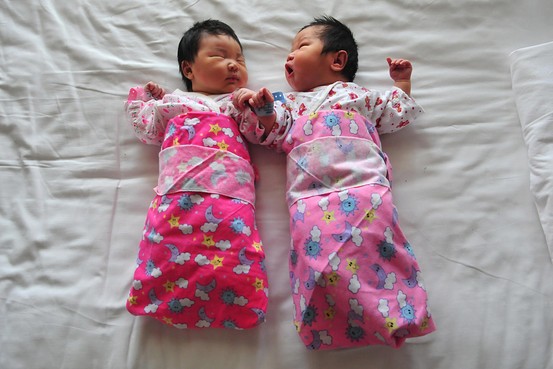China’s Two-Child Policy

December 2, 2015
The average American family has two or three children, with no limit on the amount of children a couple can have. In China, however, each couple is limited to one child.
This law was introduced and enforced in 1979 in an effort to slow population growth rates and was predicted to prevent 400 million births.
China’s population was estimated to about 1.4 billion in 2015.
This law has been strongly enforced, with very serious consequences and punishments for couples that have more than one child. If this law was to be broken, the punishment can be a fine, loss of employment, or forced abortion.
This law is only for the Han, Chinese who live in urban areas. The Han Chinese make up most of the dominant group in China. However, Han Chinese families can have a second child if the first-born is a girl or if the first-born has any birth defects/major health problems.
Much of the permanent damage that has been done to women who have broken the law before can’t be easily changed. For example, an abortion can cause serious damage, even lead to death.
Even after this new law is changed, it still violates international human rights law by not allowing women to have the number of children they desire.
China is known for breaking or violating international human rights law. For example, China has violated laws on prisons, civil liberties, executions, torture, economic/property rights, and the one child policy.
People in China, however, have become accustomed to these laws. Many of China’s citizens can’t afford to take care of one child; so many Chinese citizens don’t bother to have any children at all.
Since this law has not been very successful, the Chinese government decided to change the law for economic reasons. There are not enough young people to fill the cheap labor jobs.
The second reason for the new two-child policy is the burden of having to take care of the elderly. Since the burden usually goes down to the child, the child would have to take care of their parents and grandparents. Instead of sharing the burden with a sibling, the child may abandon this responsibility, and leave the elders without care.
This new child policy can impact the U.S. since most of the adoptions from the U.S. are from China. This could affect the U.S. since now people can keep their children instead of having to give them up for adoption.
After about 35 years of the one-child policy China has decided to change the law. Even if this has caused permanent damage to women, couples, and families, many of China’s younger community has reached to this policy change with great joy. This new policy won’t be changed until March 2016.









